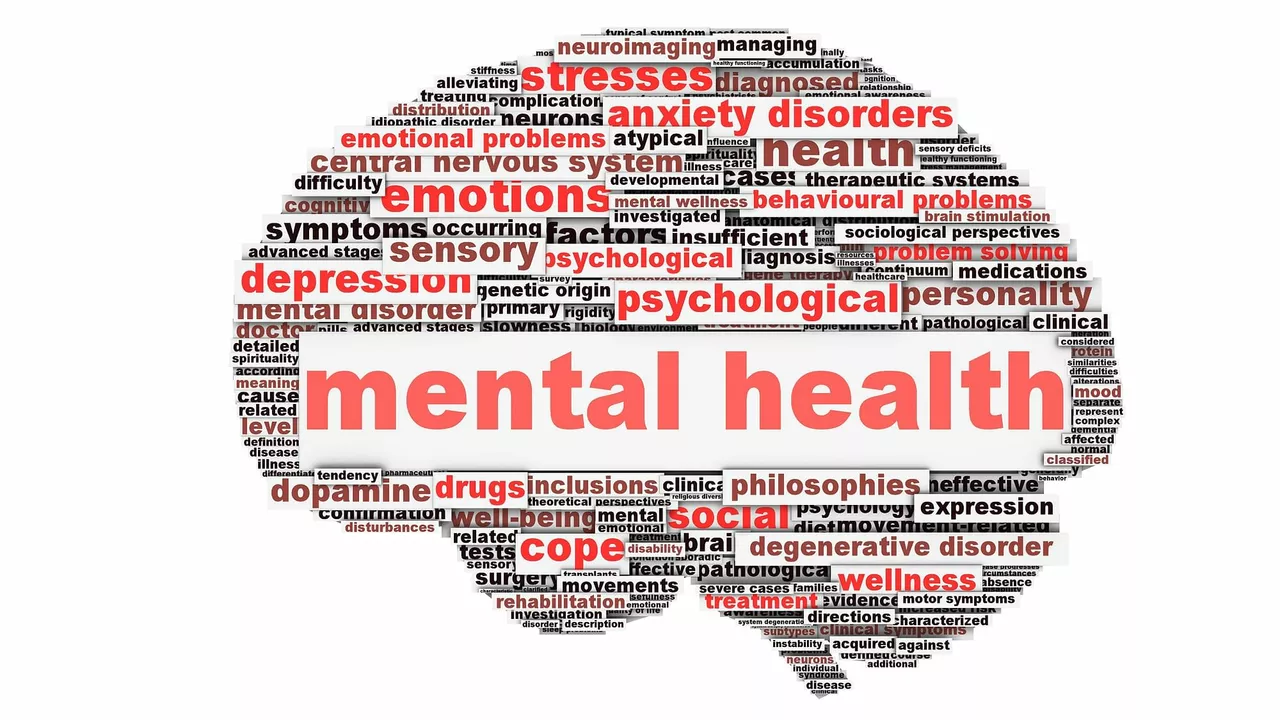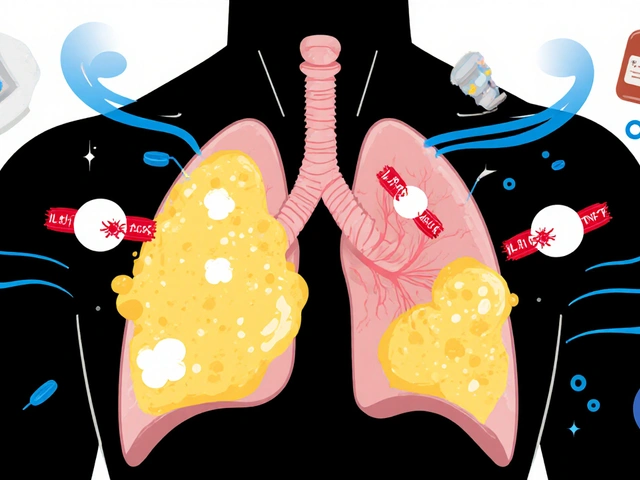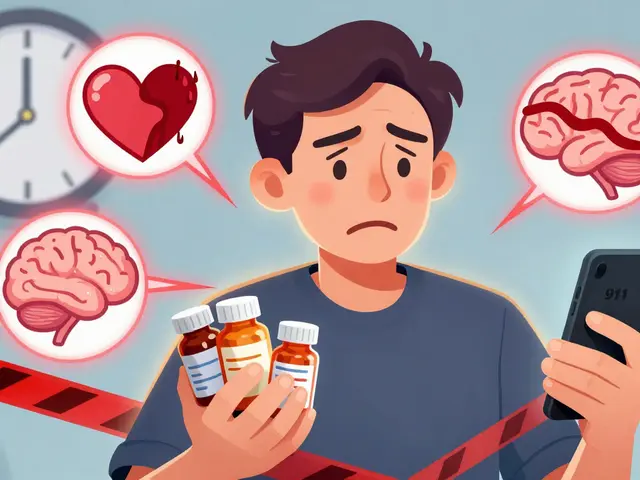Understanding Inflammation and Its Effects on the Body
Inflammation is the body's natural response to injury, infection, or irritation. It's a protective mechanism that helps our body heal and defend itself against harmful substances. However, when inflammation becomes chronic or excessive, it can have detrimental effects on our overall health. Research has shown that chronic inflammation is linked to numerous physical health issues, including heart disease, diabetes, and arthritis.
But what about our mental health? Can inflammation also play a role in the development of mental health disorders? In recent years, there has been a growing interest in the potential connection between inflammation and mental health. In this article, we will explore the possible link between the two and discuss how understanding this connection could lead to more effective treatment options for those struggling with mental health issues.
The Role of Inflammatory Markers in Mental Health
One way researchers have started to uncover the relationship between inflammation and mental health is by studying inflammatory markers in the body. Inflammatory markers, such as C-reactive protein (CRP) and pro-inflammatory cytokines, are substances released by the immune system in response to inflammation. Elevated levels of these markers are often found in people with chronic inflammatory conditions.
Interestingly, studies have also found that individuals with mental health disorders, such as depression and anxiety, tend to have higher levels of inflammatory markers in their blood. This suggests that there may be a link between inflammation and the development or worsening of these conditions. However, it is important to note that this is not a cause-and-effect relationship, and more research is needed to fully understand the connection.
How Inflammation May Contribute to Mental Health Issues
Although the exact mechanisms are still being investigated, there are several ways in which inflammation may contribute to mental health issues. One possibility is that inflammation can directly affect the brain, causing changes in neurotransmitter levels and brain function. For example, inflammation has been shown to reduce the production of serotonin, a neurotransmitter that plays a critical role in regulating mood, sleep, and appetite.
Another possibility is that inflammation may contribute to mental health issues indirectly, by causing or exacerbating physical health problems. As mentioned earlier, chronic inflammation is associated with a variety of physical health issues, including heart disease and diabetes. These conditions can have a significant impact on a person's quality of life, and may lead to feelings of depression and anxiety.
Inflammation and Stress: A Vicious Cycle
Stress is a well-known risk factor for mental health issues, and it has also been linked to increased inflammation in the body. When we're stressed, our body releases stress hormones, such as cortisol, which can trigger an inflammatory response. This means that stress and inflammation can create a vicious cycle, where stress leads to inflammation, which in turn contributes to mental health issues, and these issues then cause more stress.
Breaking this cycle can be challenging, but it is essential for improving both our physical and mental health. One way to do this is by finding effective ways to manage stress, such as practicing mindfulness, engaging in regular exercise, and seeking support from friends, family, or a mental health professional.
Anti-Inflammatory Strategies for Improved Mental Health
Given the potential connection between inflammation and mental health, it's worth considering the incorporation of anti-inflammatory strategies into our daily lives. This could include making dietary changes, such as eating a diet rich in anti-inflammatory foods like fruits, vegetables, whole grains, and healthy fats. Additionally, certain supplements, such as omega-3 fatty acids and curcumin, have been shown to have anti-inflammatory effects and may be beneficial for mental health.
Regular exercise is another important strategy for reducing inflammation and promoting mental health. Physical activity has been shown to decrease levels of inflammatory markers in the body, while also boosting mood and helping to alleviate symptoms of depression and anxiety. Aim to engage in at least 30 minutes of moderate-intensity exercise most days of the week for optimal benefits.
Final Thoughts: The Importance of a Holistic Approach to Mental Health
In conclusion, the connection between inflammation and mental health is a complex and intriguing area of research. While more studies are needed to fully understand this relationship, it's clear that addressing inflammation could play a crucial role in improving mental health outcomes. By taking a holistic approach to our well-being, including managing stress, eating a healthy diet, and engaging in regular physical activity, we can help reduce inflammation and promote both physical and mental health.
Remember, if you are struggling with mental health issues, it's essential to seek help from a mental health professional. They can provide guidance on the most effective treatment options for your specific needs, which may include addressing any underlying inflammation.











Rebecca Breslin
I've been tracking CRP levels for years and let me tell you, the data is undeniable. Chronic inflammation is the silent killer behind 70% of mental health cases. Your brain is literally being eaten by cytokines. Stop ignoring it and start testing.
Kierstead January
This is why America needs to ban sugar and processed foods. We're not just getting fat-we're getting depressed. Europe's got it right with their Mediterranean diet. We're a nation of walking inflammations.
Imogen Levermore
lol u think its just diet?? 😏 what about 5G towers + chemtrails + fluoride in the water?? my cousin had anxiety and after she stopped drinking tap water and started wearing a copper hat... poof. gone. 🧠⚡💧
Chris Dockter
You people talk about inflammation like its a new discovery. Bro its 2024. We've known since the 90s that stress = cortisol = cytokines = brain fog. Stop acting like you just found out the sky is blue
Gordon Oluoch
The correlation is statistically significant but causation remains unproven. You're conflating association with mechanism. This is why pseudoscience spreads. Fix your epistemology before you fix your diet.
Tyler Wolfe
i just started walking 30 mins a day and my brain feels lighter. like someone turned down the volume on the noise inside my head. no magic, just movement. 🙏
Neil Mason
I'm from Toronto and we got this cold weather thing going on. I used to get super down in winter. Then I started eating more turmeric, taking walks even when it snows, and talking to my neighbor. Not a cure. But it helps. We're all just trying to stay warm, y'know?
Andrea Gracis
i never knew inflammation could make you feel so tired and sad. i thought it was just my brain being broken. now i eat more berries and feel a little less heavy. thanks for saying this out loud
Matthew Wilson Thorne
The real issue is the epistemological collapse of public discourse. You can't solve neuroinflammation with kale.
April Liu
You're not broken. Your body is trying to tell you something. Start with sleep. Then movement. Then food. Not all at once. Just one step. You got this. 💪❤️
Emily Gibson
I used to think mental health was all in your head. Turns out it's also in your gut, your joints, your bloodstream. We're whole systems, not broken parts. That's kinda beautiful, actually.
Kika Armata
The entire narrative around inflammation is a corporate ploy to sell supplements. Omega-3s? Overpriced fish oil. Curcumin? A placebo with a fancy name. Real medicine is pharmaceutical-grade SSRIs and regulated clinical trials-not some wellness influencer’s smoothie bowl.
Herbert Lui
We're all just carbon-based lifeforms trying not to dissolve into our own chemistry. Inflammation? It's the body's way of screaming in a language we forgot how to listen to. Maybe we don't need more pills. Maybe we need more silence.
Nick Zararis
I've been doing this for 12 years. Anti-inflammatory diet? Yes. Exercise? Yes. Therapy? Absolutely. But the real game-changer? Morning sunlight. 10 minutes. No sunglasses. It resets your circadian rhythm, lowers cortisol, reduces IL-6. It's science. Not magic. Just biology.
Sara Mörtsell
So you're saying the pharmaceutical industry didn't invent depression to sell drugs? And that the government isn't suppressing the real cure-vitamin D and fasting? I'm sorry but I've read too many papers to believe this is just about turmeric
Rhonda Gentz
It's interesting how we've separated mind and body for so long. Like they're different rooms in the same house. But when one room catches fire... the whole house gets smoky. Maybe we're finally learning to see the whole house.